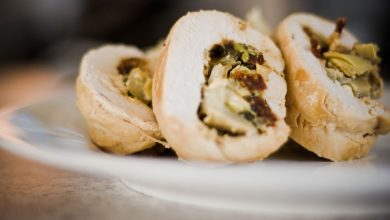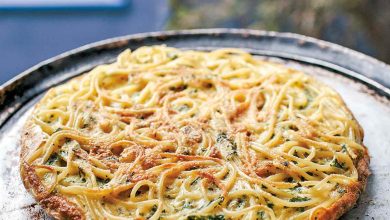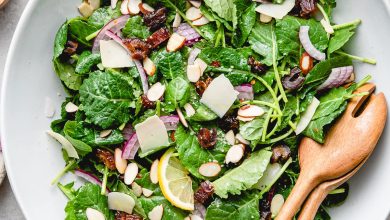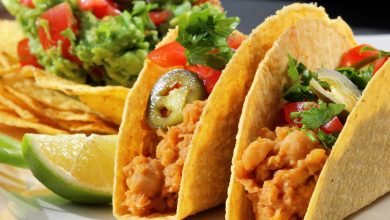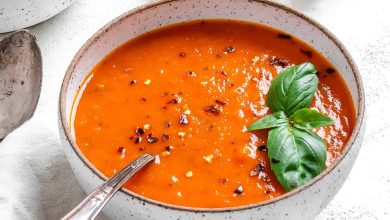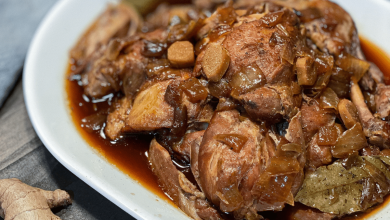🍝🧀🍅🍽️
The Asiago Sun-Dried Tomato Pasta is a delightful Italian-inspired dish that combines the nutty flavor of Asiago cheese with the intense sweetness of sun-dried tomatoes, all served over pasta. Here’s a detailed response with all the information you requested:
What is Asiago Sun-Dried Tomato Pasta?
Asiago Sun-Dried Tomato Pasta is a pasta dish that typically features a creamy sauce made from Asiago cheese and sun-dried tomatoes, served over your choice of pasta. It’s a rich and flavorful dish with a perfect balance of savory and sweet elements.
History:
The specific origin of this dish is unclear, but it draws its inspiration from Italian cuisine. Asiago cheese, which comes from the Veneto region in Italy, is a key ingredient, and sun-dried tomatoes have been used in Mediterranean cooking for centuries. Combining these two elements into a pasta dish is a modern culinary innovation.
Components:
- Pasta: You can use any pasta you prefer, such as linguine, fettuccine, or penne.
- Asiago Cheese: Asiago is a semi-hard Italian cheese with a nutty and slightly sweet flavor. It’s typically grated or shredded for this recipe.
- Sun-Dried Tomatoes: These are dried and dehydrated tomatoes with an intense, sweet, and tangy flavor.
- Heavy Cream: This provides the creamy base for the sauce.
- Garlic: Adds a nice depth of flavor.
- Olive Oil: Used for sautéing the garlic and sun-dried tomatoes.
- Seasonings: Salt, pepper, and herbs like basil or oregano for added flavor.
Steps to Prepare Asiago Sun-Dried Tomato Pasta:
-
Cook the Pasta: Boil a large pot of salted water, and cook the pasta according to the package instructions. Drain when it’s al dente.
-
Prepare the Sauce:
- Heat olive oil in a pan over medium heat.
- Add minced garlic and sauté until it’s fragrant but not browned.
- Add the sun-dried tomatoes and cook for a few minutes to rehydrate and soften them.
- Pour in the heavy cream, and bring it to a gentle simmer. Season with salt and pepper.
- Gradually add the grated Asiago cheese and stir until the sauce is creamy and the cheese is fully melted.
-
Combine Pasta and Sauce:
- Toss the cooked pasta in the creamy sauce, making sure it’s well-coated.
-
Serve: Garnish with fresh herbs like basil or oregano and some additional shredded Asiago cheese if desired.
Preparation Time:
The time required to make Asiago Sun-Dried Tomato Pasta largely depends on your cooking skills, but it typically takes around 20-30 minutes. Boiling the pasta usually takes the most time. It’s a relatively quick and easy recipe, perfect for a delicious weeknight meal.
Enjoy your homemade Asiago Sun-Dried Tomato Pasta! 🍝🧀🍅🍽️
Certainly! Here are the nutrition facts and health information for Asiago Sun-Dried Tomato Pasta:
Nutrition Facts (Approximate Values):
- Serving Size: 1 plate of Asiago Sun-Dried Tomato Pasta
- Calories: Approximately 500-700 calories per serving, depending on portion size and ingredients used.
- Protein: About 15-20 grams
- Carbohydrates: Approximately 50-70 grams
- Dietary Fiber: Around 2-4 grams
- Fat: About 25-35 grams
- Saturated Fat: Approximately 10-15 grams
- Cholesterol: Varies depending on the amount of Asiago cheese used.
- Sodium: Can be relatively high due to cheese and salted pasta water.
Health Information:
- Protein: The dish provides a moderate amount of protein, which is essential for muscle repair and overall body function.
- Carbohydrates: Pasta is a source of carbohydrates, providing energy. Whole-grain pasta can offer more dietary fiber.
- Dietary Fiber: Depending on the type of pasta used, the fiber content may vary. Whole-grain pasta is a healthier option as it contains more fiber, aiding digestion.
- Fat: The dish contains a notable amount of fat, mainly from the cheese and cream. While fats are necessary for overall health, it’s advisable to consume them in moderation.
- Saturated Fat: The saturated fat content can be relatively high due to the cheese and cream. High consumption of saturated fats should be limited to maintain heart health.
- Cholesterol: Asiago cheese can contribute to the cholesterol content of this dish. If you’re concerned about cholesterol, consider using a lower-fat cheese or less cheese in your recipe.
- Sodium: Be cautious of the sodium content, especially if you have high blood pressure. You can reduce the salt by using less in the pasta water and choosing low-sodium ingredients.
Health Tips:
- Portion Control: Keep your serving sizes moderate to manage calorie intake.
- Ingredient Choices: Opt for whole-grain pasta for added fiber and choose lower-fat cheese or reduce the cheese quantity to make the dish healthier.
- Balanced Diet: Enjoy this pasta as part of a balanced diet with plenty of fruits and vegetables to ensure a variety of nutrients.
As always, it’s a good idea to consult with a healthcare professional or nutritionist for personalized dietary recommendations based on your specific health and dietary needs.

